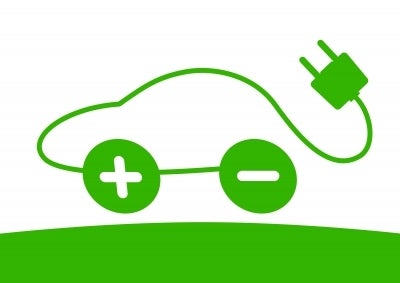Better Days Ahead For Electric Car Batteries, Say Analysts

More electric-powered vehicles have been sold this year than in any other, but it's still not enough demand to absorb all the production coming out of companies in Central Massachusetts and beyond.
"There's just too much battery production to this point, so there was destined to be some failures (among battery manufacturers) because there's just not a big enough market for how much production there is," said Dave Hurst, senior analyst with Pike Research in Metro Detroit.
He was referring to Waltham-based lithium-ion battery maker A123 Systems. The company, which has facilities in Westborough and Hopkinton, filed for Chapter 11 bankruptcy protection last month; parts of the company were in the process of being auctioned off last week at press time.
Prior to that filing, A123 had announced a deal with Chinese company Wanxiang Group that would infuse the battery maker with up to $465 million and give Wanxiang a majority stake in A123. The deal drew outcries from federal lawmakers and others because A123 had received $249 million in stimulus money, and many expressed fears that, with Wanxiang in charge, A123 would send manufacturing jobs, intellectual property and taxpayer money overseas. In announcing its bankruptcy, A123 said the deal with Wanxiang fell through, but the Chinese firm has shown renewed interest, squaring off against Milwaukee-based Johnson Controls for parts of A123 at auction. A123 declined comment on this story.
No matter the outcome for A123, Hurst doesn't expect it to be the last consolidation or shift of battery makers to other countries. That's because there's still too much production in the U.S., while China has become much more attractive for these emerging companies.
Westborough-based lithium-ion battery maker Boston-Power sent most of its operations to China about a year ago — taking 30 jobs with it — and pledging to create hundreds more.
Boston-Power representatives were unable to be reached for comment, but last April, founder Christina Lampe-Onnerud told a gathering in Worcester that moving the company's focus to China was a tough decision, yet ultimately the right one, because that's where its customer base is. The company had planned to open a plant in Auburn, but shifted gears when its application for a $100-million federal grant in 2009 wasn't approved.
Better Government Deals In China
Hurst said U.S. Department of Energy (DOE) financing has all but dried up for projects in the United States, making it more attractive to go to places like China, which has rich incentives and funding.
Massachusetts is working to entice energy entrepreneurs to stay here, according to Martha Broad, director of knowledge development for the Massachusetts Clean Energy Center (MassCEC).
"We're investing in battery storage technologies and consider it a promising area and we're looking to grow an ecosystem of clean-energy technology companies," she said.
She said the MassCEC does that by providing early seed funding to startups and helping fund internships for students at clean energy companies. Over the last two summers, 262 students interned at 77 companies, with 38 going on to full- or part-time employment.
Broad said funding is also used for that research, one example being the MIT Energy Initiative, which teams the school with industry players focused on clean energy.
More Focus On Research?
Vincent DeVito, executive director of Worcester's Institute for Energy and Sustainability and an energy lawyer at Bowditch & Dewey, believes the industry can benefit more from that type of funding than what has been done with A123 and other companies like Evergreen Solar and California-based Solyndra, which took government funding and later went out of business.
"This whole idea of providing money to a company so it can expand when we're not sure if the technology works probably is not good stewardship of the government money," he said. "Why are we investing in companies when we should be investing in research (that would improve) technology?"
Despite EV battery research being conducted here, Hurst said the bulk of it is being done in Michigan, Tennessee and California, where automakers have major operations. And even though demand hasn't quite caught up with production of EV batteries, experts say it will happen within the next few years.
Hurst said that by about 2015, many EVs will be in their second generations and that early adopters will make way for more typical consumers. However, he believes gas prices will have to rise in order for the vehicles to be more widely adopted.
Meanwhile, Genevieve Cullen, vice president of the Electric Drive Transportation Association (EDTA), a trade group for the electric vehicle industry, is optimistic that demand will continue to rise as options for EVs become more diverse. She said that in 2010, the Chevrolet Volt and Nissan Leaf were the only "plug-in" battery vehicles on the market. Now, there are 16 models for sale, and the EDTA expects that to nearly double, to 31 by 2015.
Image credit: FreeDigitalPhotos.net.
Read more
Southborough Firm Wins China Contract
A123 Hopes For Investment Deal As Losses Widen
A123 Completes Financing Deal With Chinese Firm
Boston-Power Founder Steps Down
A123 Selling Most Assets To Chinese Firm









0 Comments